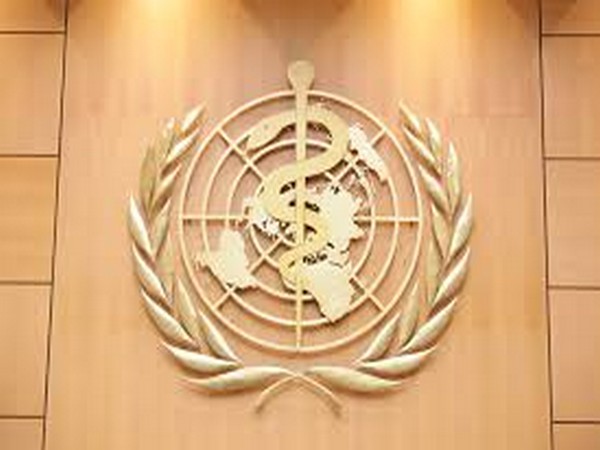WRAPUP 11-WHO brands coronavirus "public enemy number one"

The coronavirus outbreak in China may be over by April, the country's senior medical adviser said on Tuesday, but deaths surpassed 1,000 and the World Health Organization (WHO) warned of a global threat potentially worse than terrorism.
The world must "wake up and consider this enemy virus as public enemy number one," WHO chief Tedros Adhanom Ghebreyesus told reporters. As the epidemic squeezed the world's second-biggest economy, Chinese firms struggled to get back to work after the extended Lunar New Year holiday, hundreds of them saying they would need loans running into billions of dollars to stay afloat.
Company layoffs were beginning despite assurances by President Xi Jinping that widespread sackings would be avoided, as supply chains for global firms from car manufacturers to smartphone makers ruptured. China's foremost medical adviser on the outbreak, Zhong Nanshan, told Reuters numbers of new cases were falling in some provinces and forecast the epidemic would peak this month.
"I hope this outbreak or this event may be over in something like April," added Zhong, 83, an epidemiologist who won fame for his role in combating an outbreak of Severe Acute Respiratory Syndrome in 2003. The WHO said on Tuesday 1,017 people had died in China, where there were 42,708 cases.
Only 319 cases have been confirmed in 24 other countries and territories outside mainland China, with two deaths: one in Hong Kong and the other in the Philippines. World stocks, which had seen rounds of selloffs due to the coronarivus' impact on China's economy and ripple effects round the world, surged to new record highs on Zhong's comments.
Bank of England Governor Mark Carney said the financial spillover from the outbreak looked containable, and output lost to pandemics tends to be recovered in subsequent quarters, but added it was still early to judge the economic impact. CHINA STILL IN "EMERGENCY" - WHO
Tedros was less sanguine, saying the coronavirus should be regarded as akin to a terrorist attack. "To be honest a virus is more powerful in creating political, social and economic upheaval than any terrorist attack," he said. "It's the worst enemy you can imagine"
The first vaccine was 18 months away, said the WHO boss, urging global unity to prevent "far more cases and far higher costs" from the disease - now officially named COVID-19. With travel curbs, lockdowns and production suspensions all affecting China's economy, many were trying to calculate and predict the probable impact.
JPMorgan analysts downgraded forecasts for Chinese growth this quarter, saying the outbreak had "completely changed the dynamics" of its economy. Investment bank Nomura's analysts said the virus seemed to have had "a devastating impact" on China's economy in January and February with markets "significantly underestimating" the disruption.
Norway's biggest independent energy consultancy Rystad Energy predicted the outbreak will cut growth in global oil demand by a quarter this year. However, two European Union officials said the impact on the bloc from damage to China's economy would only be "marginal". Inside China, more than 300 companies are seeking bank loans totalling 57.4 billion yuan ($8.2 billion) to help cope with the disruption, banking sources said.
Prospective borrowers include food delivery giant Meituan Dianping, smartphone maker Xiaomi Corp and ride-hailing provider Didi Chuxing Technology Co. WORKERS AFFECTED
Chinese firm Xinchao Media said on Monday it had laid off 500 people, or just over a tenth of its workforce, and restaurant chain Xibei said it was worried about how to pay its roughly 20,000 workers. Authorities said they would roll out measures to stabilise jobs, in addition to previously announced cuts to interest rates and fiscal stimulus designed to minimise any downturn.
The World Bank ruled out any new health loans to China, though technical assistance would be offered. Hubei, where the flu-like virus emerged from a wildlife market in the provincial capital of Wuhan, remains in virtual lockdown, its stations and airports shut and roads blocked.
Nevertheless, its health authority reported 2,097 new cases and 103 new deaths on Feb. 10. With public anger rising, Hubei's government dismissed the provincial health commission's Communist Party boss Zhang Jin and director Liu Yingzi, state media said.
Washington, whose travel measures have offended Beijing, authorized the voluntary departure of U.S. government employees and family members from Chinese-ruled Hong Kong "out of an abundance of caution," the State Department said. Dr. Anne Schuchat, an official from the U.S. Centers for Disease Control and Prevention (CDC) said she hoped the first group of Americans evacuated from Wuhan could be released from their quarantine on Tuesday.
Off Japan's port of Yokohama, the Diamond Princess cruise ship with 3,700 passengers and crew remained quarantined, with the number of confirmed cases at 135. Thailand said it had barred passengers from getting off another ship, Holland America Line's MS Westerdam, even though no confirmed infections have been found on board.
(This story has not been edited by Devdiscourse staff and is auto-generated from a syndicated feed.)
ALSO READ
Earthquake of 6 magnitude strikes off east coast of Honshu, Japan, EMSC says
Japan's 'Shinto' religion contributes to Global Dialogue at 'Congress of Leaders of World and Traditional Religions'
"We'll just move on": Verstappen reflects on Red Bull's brake issue, quashes concerns for Japanese GP
Cooperation with South Korea, Philippines important for regional security, says Japan's Kishida
Verstappen hopes to use Japan's high-speed Suzuka circuit to reassert his dominance in Formula 1










